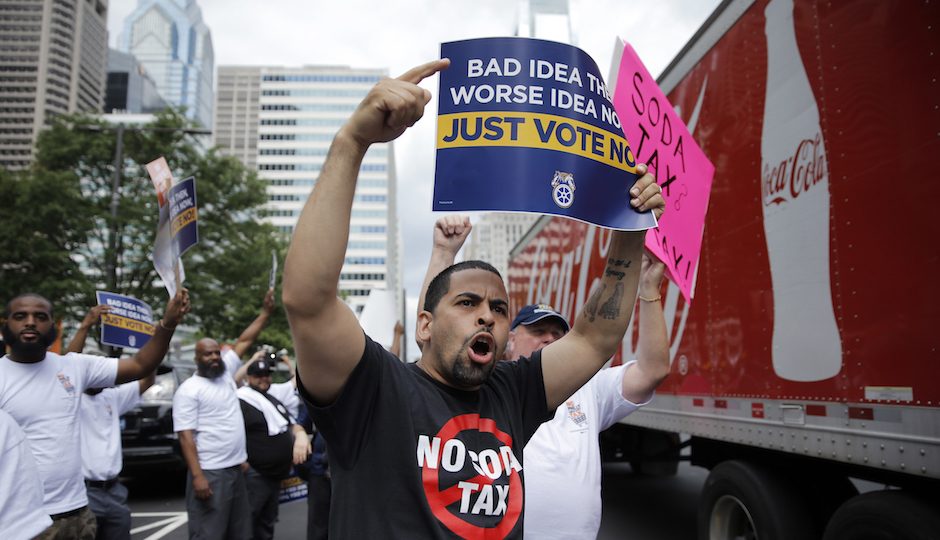Philly’s Soda Tax Is Back in Court Today

Opponents of a proposed sugary drink tax demonstrate outside City Hall on June 16, 2016. (AP file photo/Matt Rourke)
On Wednesday, a panel of Commonwealth Court judges in Pittsburgh will hear arguments over the legality of Mayor Kenney’s landmark sweetened beverage tax.
Levied just four months ago, the soda tax brought in about $12 million in its first two months to fund key city initiatives including pre-K expansion, the establishment of community schools and the revitalization of city parks libraries and recreation centers. The city expects to bring in $92 million each year with the tax.
But a lawsuit filed in September against the tax by the American Beverage Association, local residents, and business owners argues that 1.5-cents-per-ounce tax on sweetened beverages is unconstitutional. In December, a Common Pleas Court judge dismissed the lawsuit and upheld the soda tax.
Today, counsel for the ABA will argue that the lower court’s decision should be overturned and the soda tax halted. Challengers argue that the practical effect of the levy is double taxation — consumers are being forced to pay an additional sales tax on beverages already taxed by the state.
The city maintains that the soda tax is not a sales tax because it is levied at the distributor level. The city doesn’t intend to have the tax be carried by the consumer.
Challengers, who have spent more than $10.6 million lobbying against the tax, have also argued that the tax violates the state’s uniformity clause, which requires similar products to be taxed equally. The lawsuit also claims that the tax (if considered a sales tax) impinges on state and federal laws about the Supplemental Nutrition Assistance Program, or food stamps, which are supposed to be exempt from sales taxes.
“The tax is having a devastating impact on Philadelphia families and local businesses,” Anthony Campisi, spokesman for the Ax the Bev Tax coalition, told Philadelphia magazine. Prices have gone up for working families. The tax has also forced layoffs, as well as cuts in hours. The mayor projected steep declines in sales when he pushed through this tax. Now he has to reckon with the consequences: good-paying, family-sustaining union jobs are being lost.”
Philadelphia is the first major American city to pass a soda tax, and some of the city’s pre-K centers have already experienced growth due to the new funds. The city also rolled out its $40 million plan for community schools this week.
Follow @fabiolacineas on Twitter.


